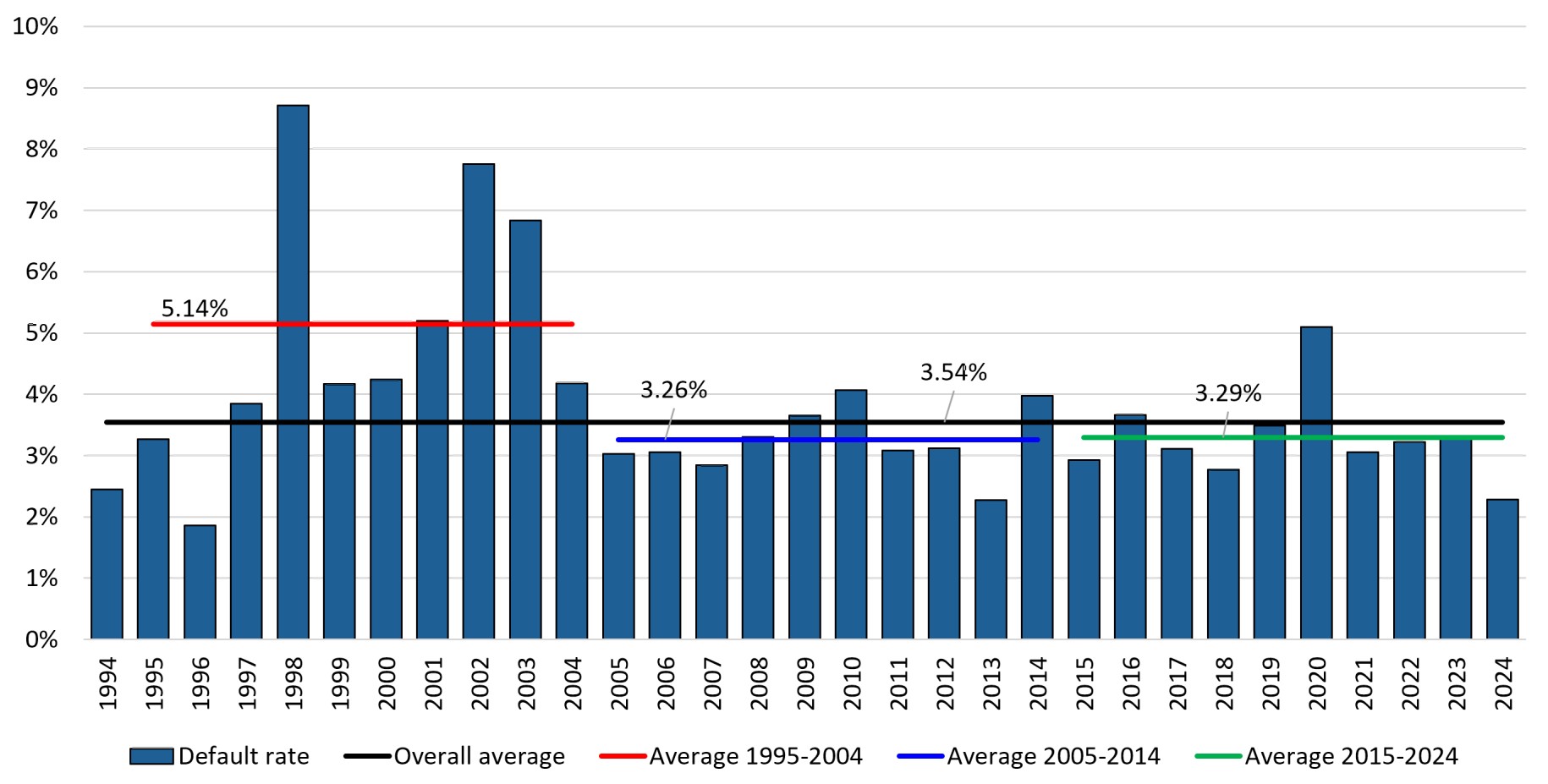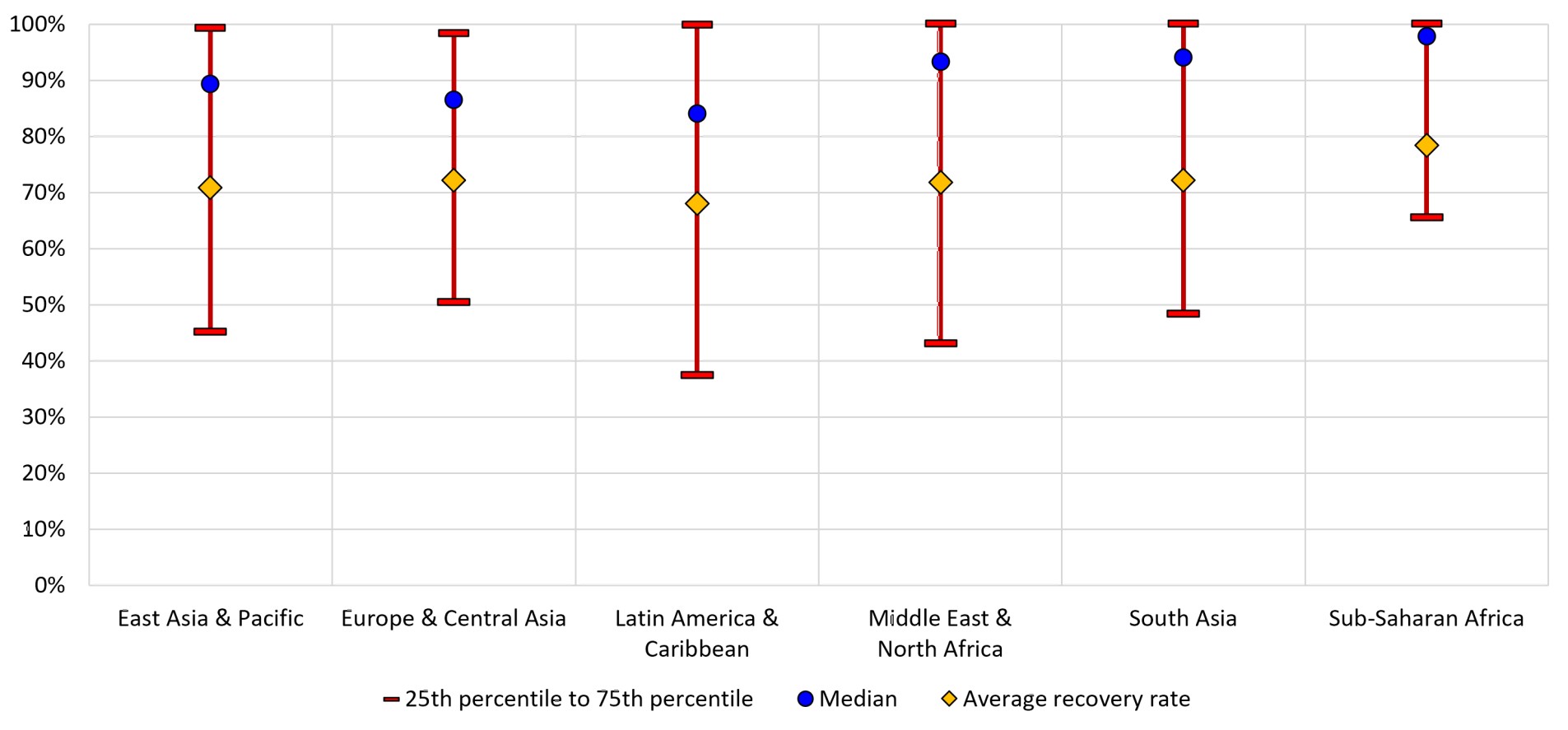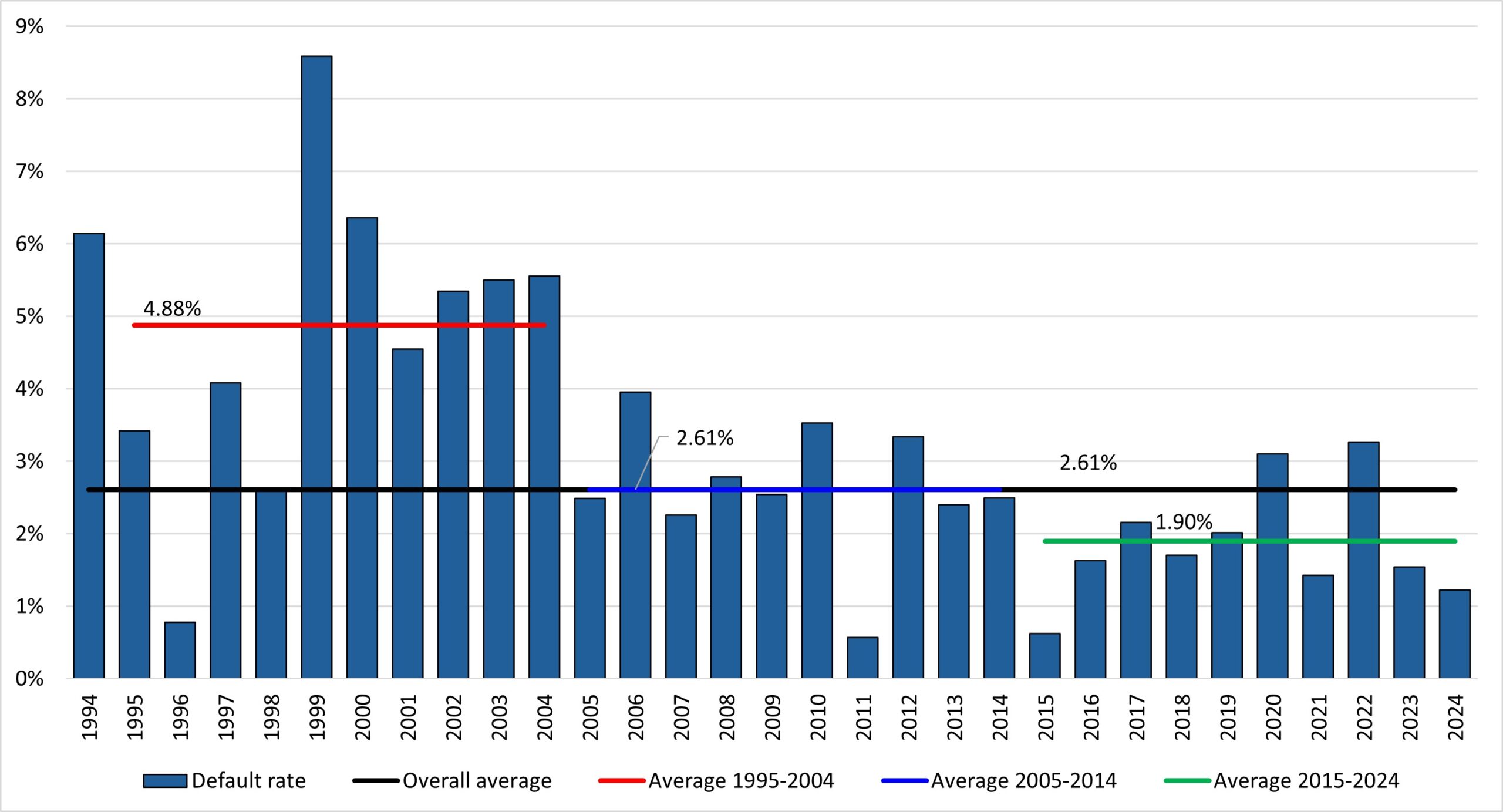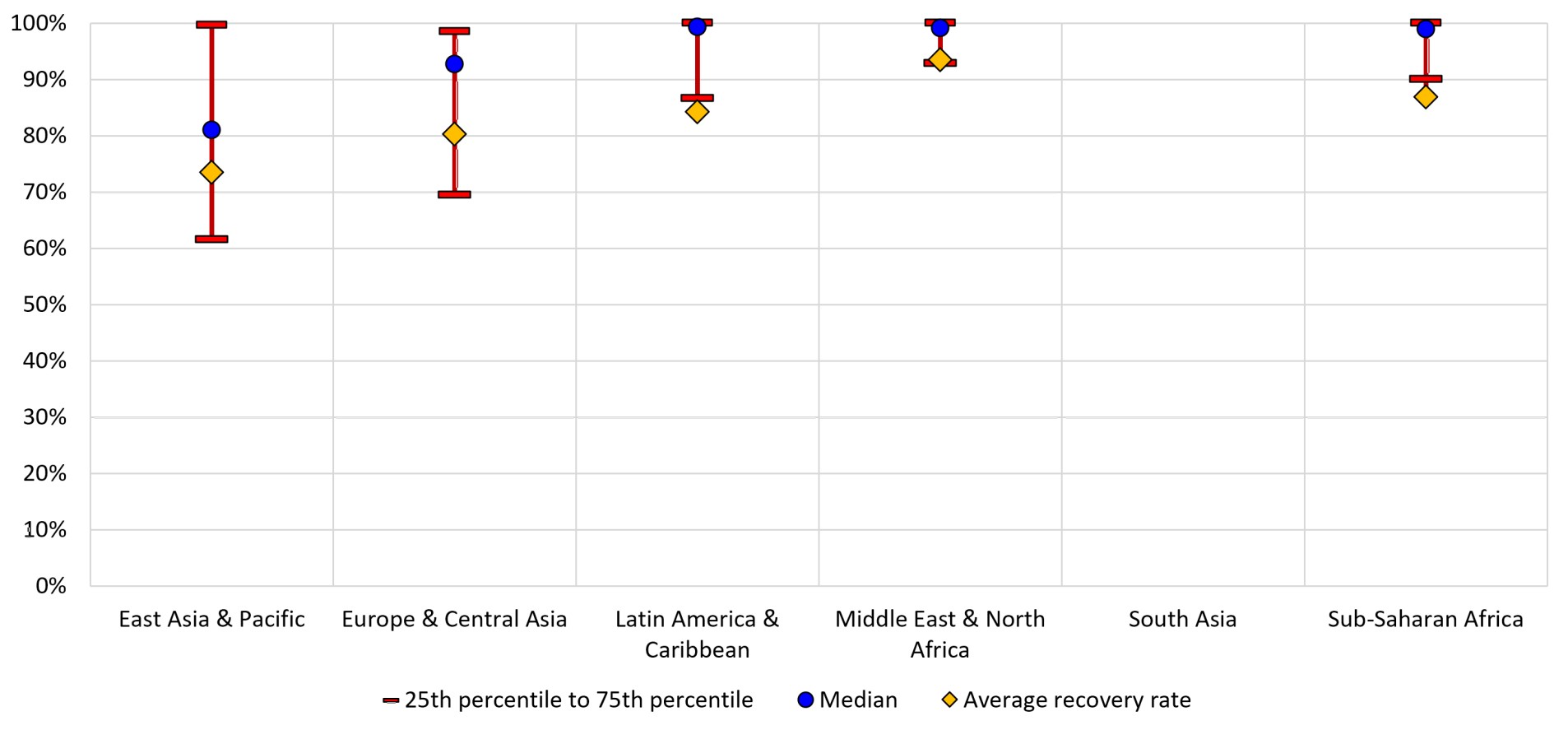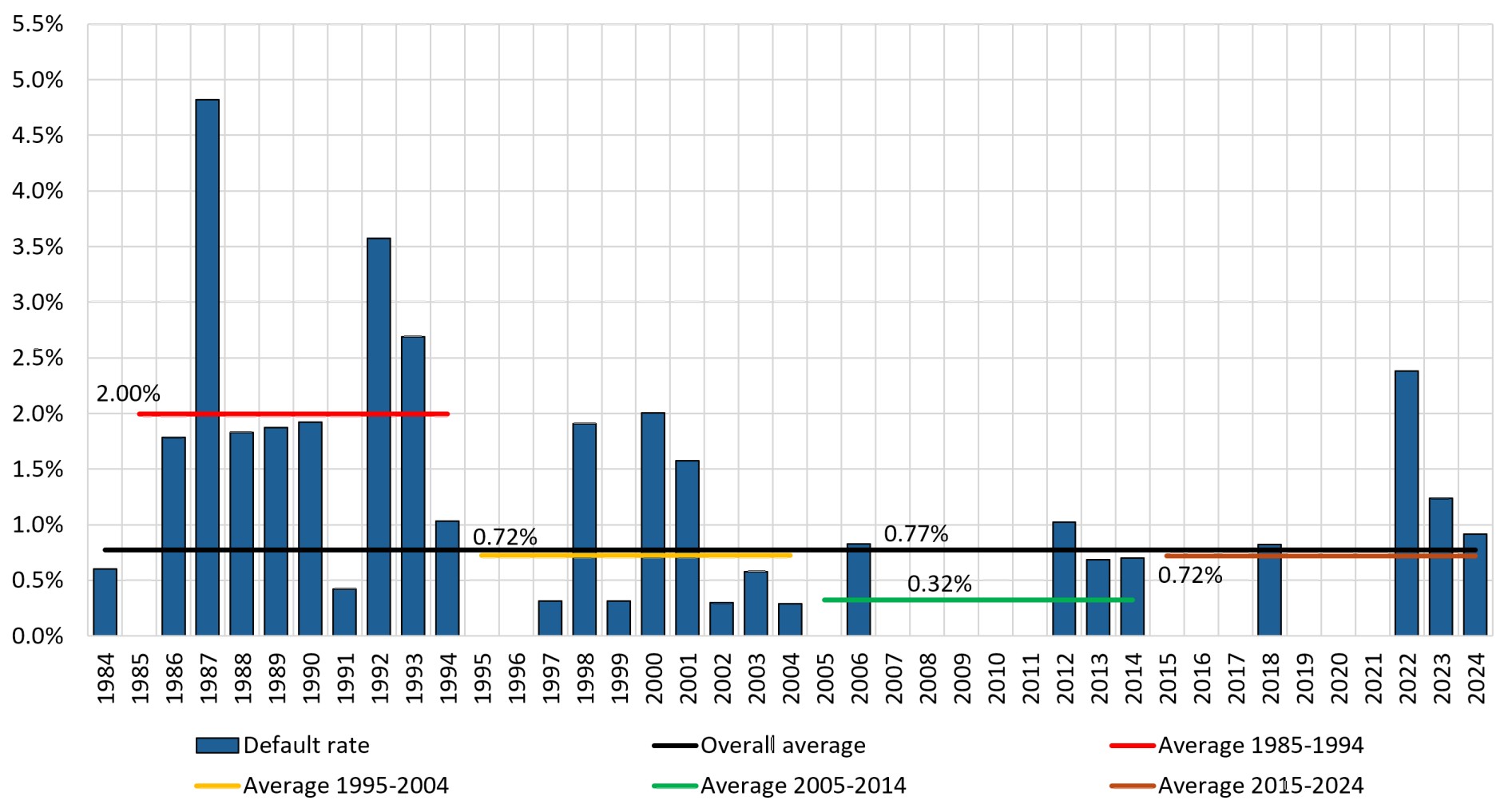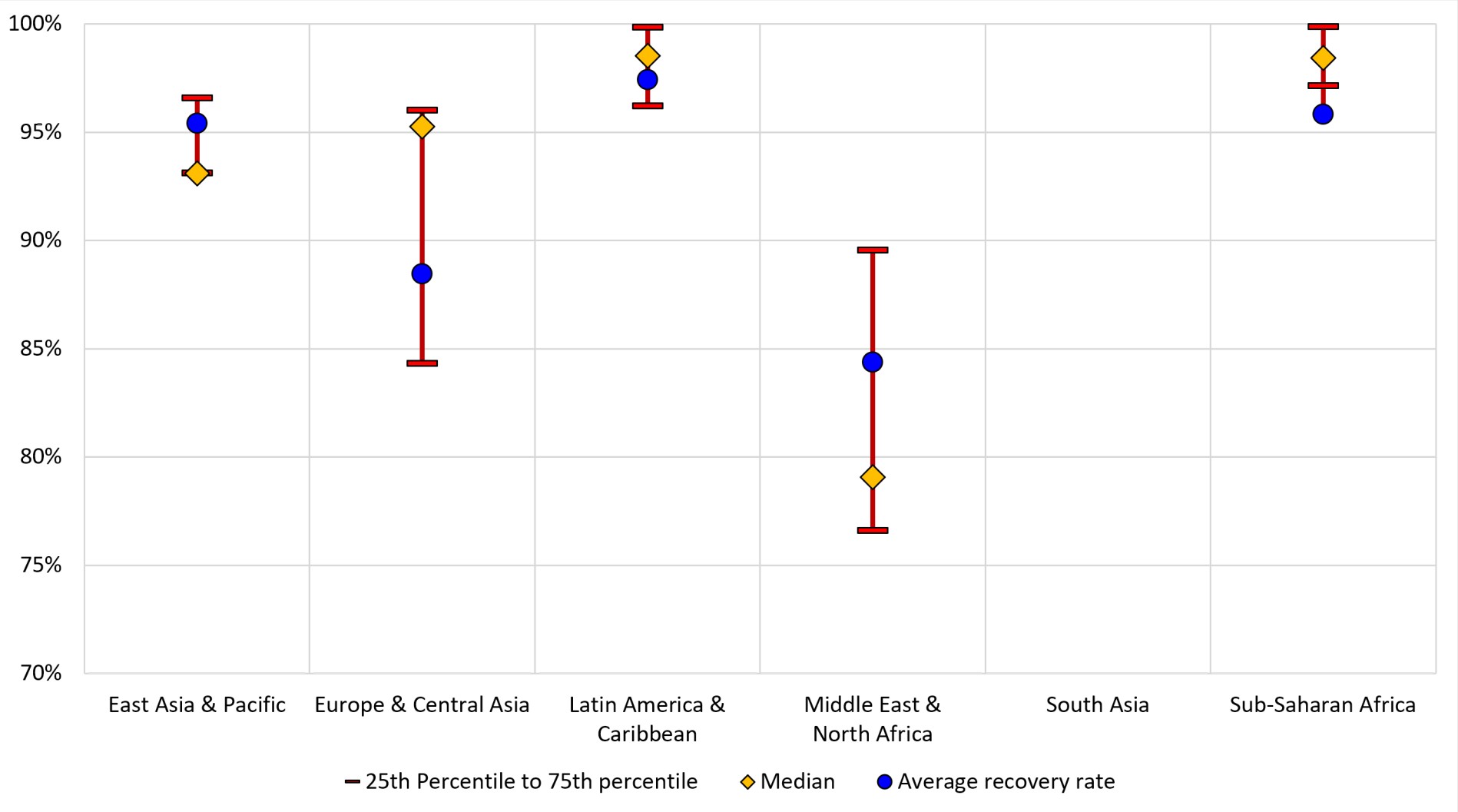Global Emerging Markets Risk Database (GEMs)
The Global Emerging Markets Risk Database (GEMs) is the world’s largest credit risk database for emerging markets. It is a joint initiative of multilateral development banks (MDBs) and development finance institutions (DFIs) that pools credit risk data on their lending operations in Emerging Markets and Developing Economies (EMDEs) and provides the public, free of charge, with the related statistics.
The GEMs Consortium was created in 2009 on the initiative of the European Investment Bank (EIB) and the International Finance Corporation (IFC) and has evolved into a community of practice that develops common approaches and data methodologies to record default and recovery frequencies for the member MDBs and DFIs.
The GEMs database includes data from the member institutions, which are the world’s largest MDBs and DFIs.
News
New Statistics from GEMs Consortium Show Risk of Investing in Emerging Markets Is Lower than Commonly Perceived
Luxembourg, 7 October 2025—New default and recovery statistics released today by the Global Emerging Markets Risk Database (GEMs) Consortium shed light on investment risks in emerging markets and developing economies (EMDEs) and provide new views on potential...
GEMs Engages Galytix/PwC to Develop New Credit Risk Platform
Luxembourg, 25 September 2025—The Global Emerging Markets Risk Database (GEMs) Consortium today announced a major step forward in its mission to contribute to unlocking private investment in emerging markets and developing economies (EMDEs) with the appointment of a...
New publications by GEMs Consortium offer further insights into emerging market credit risk
New publications by GEMs Consortium offer further insights into emerging market credit risk Two new publications by Global Emerging Markets Risk Database (GEMs) Consortium provide granular default and recovery patterns for over three decades of development finance,...








